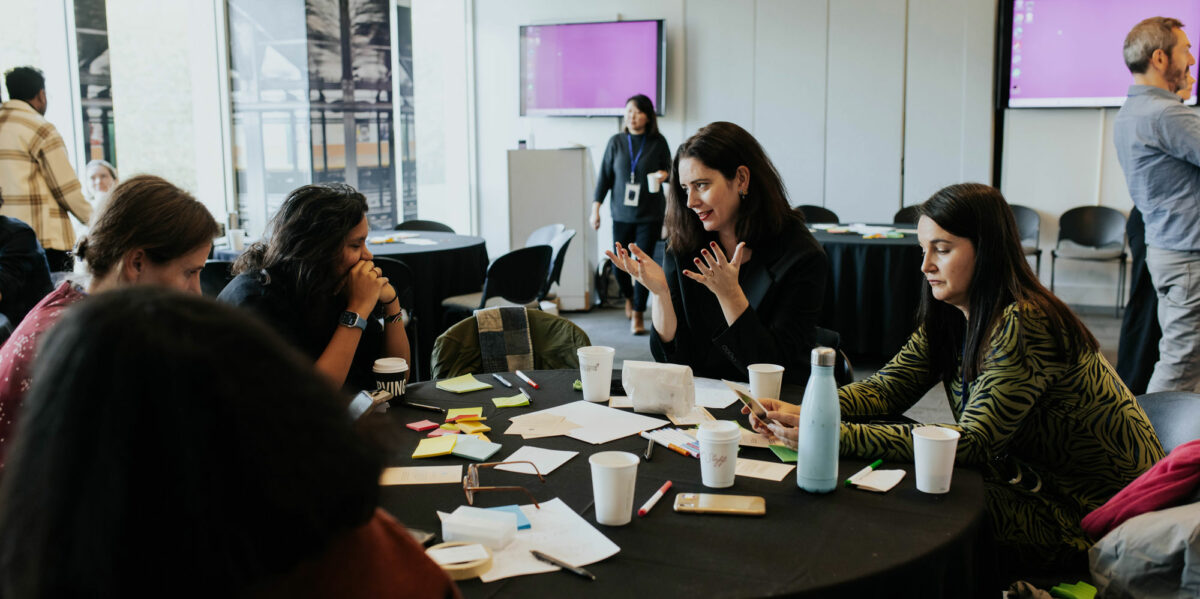HUMAN RIGHTS MOVEMENT
Human Rights Resilience Project
Since 2015, a research team of human rights lawyers and psychologists have been working to document, raise awareness, and develop culturally-sensitive training programs to promote well-being and resilience among human rights workers.
The Human Rights Resilience Project is an interdisciplinary research initiative co-led by Margaret Satterthwaite in collaboration with Sarah Knuckey and Anjli Parrin of Columbia Law School and Adam Brown and Manaswi Sangraula of The New School.
The project is grounded in the belief that the well-being of human rights activists is essential for sustainable movements.

The project’s initial phase consisted of an online survey of human rights workers based in dozens of countries. An analysis of survey results, published in December 2015, found high rates of adverse mental health impacts among the 346 respondents. Of those studied, 19% appeared to have PTSD, 19% had significant symptoms associated with PTSD, 15% seemed to be experiencing depression, and 19% reported burnout—rates comparable to those found among first responders and combat veterans.
With a grant from Open Society Foundations, the research team is currently mapping the ways in which human rights organizations manage and deal with the chronic stress, vicarious trauma, and trauma associated with the work. The aim is to understand the well-being challenges and opportunities in the human rights field, and the resources and approaches that human rights groups and organizations have found to be useful in protecting the well-being and mental health of their staff and volunteers.
Recommendations to Funders
Improving Mental Health and Wellbeing in the Human Rights Field
Improving and maintaining well-being is essential to individual health, to organizational functioning, and to the sustainability and effectiveness of the human rights field as a whole. There are many concrete, immediately actionable reforms that are achievable in the near-term and which address a variety of causes of distress, or which can support efforts to transform the field over the long term.
additional resources
- Digital Human Rights Investigations: Vicarious Trauma, PTSD, and Tactics for Resilience
- From a “Culture of Unwellness” to Sustainable Advocacy: Organizational Responses to Mental Health Risks in the Human Rights Field
- Crucial Need to Improve Mental Health Research and Training for Human Rights Advocates
- Trauma, Depression, and Burnout in the Human Rights Field: Identifying Barriers and Pathways to Resilient Advocacy
- Coping flexibility predicts post-traumatic stress disorder and depression in human rights advocates
- Mental Health Functioning in the Human Rights Field: Findings from an International Internet-Based Survey
- A culture of care: helping activists and their allies look after themselves
- Evidence of Trauma: The Impact of Human Rights Work on Advocates
- Signes de traumatismes: L’impact du travail de défense des droits humains sur ses militants
- Turning Weakness into Strength: Lessons as a New Advocate
- Making Our Movements Sustainable: Practicing Holistic Security Every Day
- Integrating a psychosocial perspective in human rights works
- “No One Warned Me”: the trade-off between self-care and effective activism
- Rendre nos mouvements durables: pratiquer la sécurité holistique tous les jours
- Revolutions are built on hope: the role of funders in collective self-care
- Collective care in human rights funding: a political stand
- Ready for anything: how preparation can improve trauma recovery
- When advocacy work builds resilience, everyone benefits
- Kur puna e advokimit fiton rezistencë, të gjithë përfitojnë
- Security and well-being: two sides of the same coin
- When watching violence is your job: workers on the digital frontline
- Healthy for the long haul: building resilience in human rights workers
- We cannot afford to be traumatized: the reality for grassroots advocates
- Fighting stigma: protecting the mental health of African rights advocates
- Lutter contre la stigmatisation: protéger la santé mentale des défenseurs africains des droits humains


